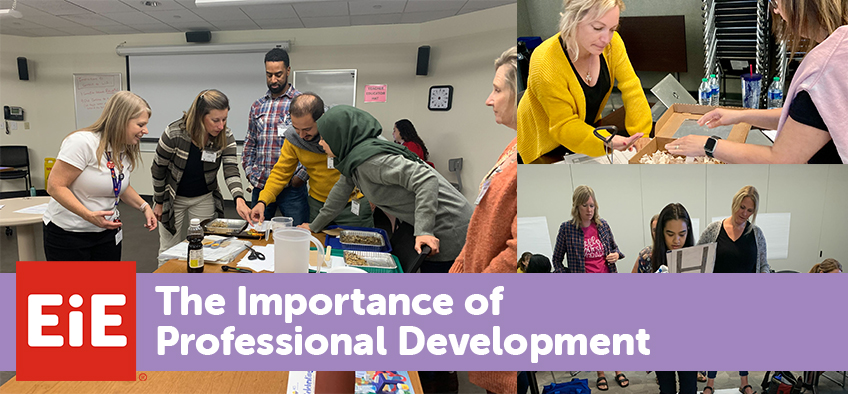Education research jobs involve conducting research to improve educational systems, policies, and practices, and develop innovative teaching methodologies. These jobs require professionals to collect, analyze, and interpret data to generate insights and recommendations for educational improvement.
Education researchers collaborate with educators, policymakers, and other stakeholders to enhance the quality of education and educational outcomes. They use a variety of research methods, including surveys, interviews, observations, and data analysis, to investigate research questions and contribute to evidence-based decision-making in the field of education.
Education research jobs offer exciting opportunities to make a positive impact on the education sector and contribute to the advancement of knowledge in educational theory and practice.
Enhancing Educational Practices With Research
Enhancing educational practices is crucial for effective teaching and learning. Teachers can apply research findings to create evidence-based teaching methods. These methods can be tailored and implemented in classroom settings to improve student outcomes. By incorporating research into their practices, educators can enhance instructional strategies, assessments, and classroom management techniques.
Research can provide insights into student learning, instructional delivery, and the impact of various teaching interventions. By staying up-to-date with the latest research in education, teachers can continuously refine and improve their teaching methods. This leads to a more engaging and effective learning experience for students, promoting their academic success.
Evidence-based teaching methods allow educators to make informed decisions based on research, resulting in better educational practices and improved student achievement. By embracing research, teachers can enhance their teaching skills and create a positive and dynamic learning environment.
Education Researcher: A Catalyst For Change
An education researcher plays a crucial role in bringing about positive change within the field of education. They are responsible for conducting extensive research and analysis to identify effective teaching methods, curriculum development, and student learning outcomes. With a keen focus on gathering and interpreting data, an education researcher assesses the impact of educational policies and programs to make informed recommendations.
Their duties involve designing and implementing research studies, collecting and analyzing data, and presenting findings to stakeholders. Strong analytical and critical thinking skills are essential for an education researcher, along with the ability to communicate complex ideas in a clear and concise manner.
A deep understanding of statistical analysis and research methodologies is also necessary for effective decision-making. Overall, an education researcher plays a vital role in advancing educational practices and contributing to the betterment of the education system.
Education Research Analyst: Transforming Data Into Insights
Education research analysts play a crucial role in transforming data into meaningful insights. They are responsible for analyzing and interpreting education data using statistical tools for research analysis. By carefully examining the data, these analysts are able to identify trends, patterns, and correlations that provide valuable information for improving educational processes and outcomes.
Their work involves conducting thorough research, collecting and organizing data, applying statistical techniques, and presenting findings in a concise and easy-to-understand manner. With their expertise, education research analysts contribute to evidence-based decision-making in the field of education, helping educators and policymakers make informed choices to enhance the educational experience for students.
Their diligent and insightful analysis ultimately drives positive changes in the educational landscape.
Education Policy Researcher: Informing Education Policies
Education policy researchers play a crucial role in shaping education policies through policy analysis and evaluation. They delve deep into researching educational systems to provide valuable insights. These professionals closely examine policy frameworks, identify areas for improvement, and propose evidence-based recommendations.
By evaluating the effectiveness of existing policies, they help policymakers make informed decisions about enhancing education systems. Education policy researchers meticulously collect and analyze data, conduct extensive literature reviews, and engage in rigorous research methodologies. Their objective is to ensure policies align with the needs of students, teachers, and educational institutions.
By informing education policies, these researchers contribute to creating a more equitable and effective learning environment for all. Their work helps to bridge the gap between research and practice, resulting in positive outcomes for students and the education sector.
Building A Solid Foundation In Education Research
Building a strong foundation in education research involves pursuing higher education degrees in research-focused fields. These degrees provide a comprehensive understanding of the principles and methodologies used in conducting research. Additionally, gaining practical experience through internships and research projects is essential in developing the necessary skills and expertise in the field.
By actively engaging in hands-on research activities, individuals can apply their knowledge to real-world situations and contribute to the advancement of educational research. This practical experience also allows individuals to develop strong analytical and critical-thinking skills, which are crucial for conducting effective research.
Overall, combining educational degrees in research-focused fields with practical experience through internships and research projects creates a solid foundation for a successful career in education research.
Developing Strong Research Skills
Developing strong research skills is crucial for education research jobs. Effective data collection and analysis techniques play a vital role in this process. By utilizing research software and tools, researchers can streamline their work and enhance the accuracy of their findings.
These tools simplify data organization, visualization, and interpretation, enabling researchers to draw meaningful conclusions. Moreover, they save time and effort by automating certain tasks and providing quick access to relevant information. Developing proficiency in these tools is an important aspect of building research skills.
By using them effectively, researchers can analyze large volumes of data efficiently and uncover valuable insights. This not only enhances the quality and validity of research but also contributes to the advancement of knowledge in the field of education. Education research jobs demand individuals who are adept at utilizing these tools and techniques to make significant contributions to the field.
Network Building And Professional Development In The Education Research Field
Network building and professional development in the education research field are crucial for career growth. Joining professional organizations and associations can provide valuable networking opportunities and resources. Attending conferences and workshops allows researchers to enhance their skills and stay updated with the latest trends and advancements in the field.
By actively participating in such events, individuals can broaden their knowledge, connect with like-minded professionals, and establish collaborations. Additionally, engaging in networking activities can lead to potential job openings and career advancements. Building a strong professional network fosters continuous learning and facilitates access to unique opportunities for growth and development.
In this dynamic field, staying connected and continuously seeking professional development is vital for success in education research jobs.

Credit: blog.eie.org
Navigating Career Advancement Opportunities
Education research jobs offer a range of career advancement opportunities. These include identifying growth and promotion prospects. Taking on leadership roles and special projects can help individuals navigate their path to success in this field. By actively seeking out such opportunities, professionals can enhance their skills and expertise.
They can also showcase their ability to take on new challenges and responsibilities. Engaging with leadership positions and undertaking special projects demonstrate a proactive approach to career advancement. Education research jobs provide a platform for individuals to develop and grow in their respective fields.
Professionals who are eager to advance in their careers can leverage these opportunities to further their professional growth. By continually seeking out new avenues for improvement, individuals can position themselves for greater success in the education research industry.
Maintaining Ethical Standards In Education Research Jobs
Education research jobs require the maintenance of ethical standards, ensuring integrity and objectivity throughout the process. Adhering to ethics guidelines and data protection laws is essential for conducting research. Researchers must approach their work with a sense of responsibility, maintaining transparency and avoiding biased outcomes.
Respecting the rights and privacy of participants is crucial, and researchers should ensure that they have informed consent. Safeguarding data and ensuring its confidentiality is paramount. Researchers should always strive for accuracy and truthfulness in their findings, presenting information in an unbiased and objective manner.
By upholding ethical standards, education research jobs can contribute to the advancement of knowledge and improvement of educational practices.
Conclusion
Education research jobs offer a unique opportunity to make a significant impact on the field of education. With a strong focus on data analysis and evidence-based practices, these jobs allow professionals to contribute to the development of innovative educational strategies and policies.
By conducting research and collecting valuable data, education researchers play a crucial role in identifying challenges and finding effective solutions to improve learning outcomes. These roles require individuals with a passion for education, excellent analytical skills, and a commitment to making a positive difference.
Moreover, education research jobs provide a stimulating and intellectually rewarding work environment, allowing professionals to continuously learn and grow in their field. So, if you have a natural curiosity and a desire to shape the future of education, consider pursuing a career in education research.
It’s a rewarding path that allows you to contribute to the improvement of educational practices and ultimately benefit students and communities worldwide.












Leave a Reply
You must be logged in to post a comment.